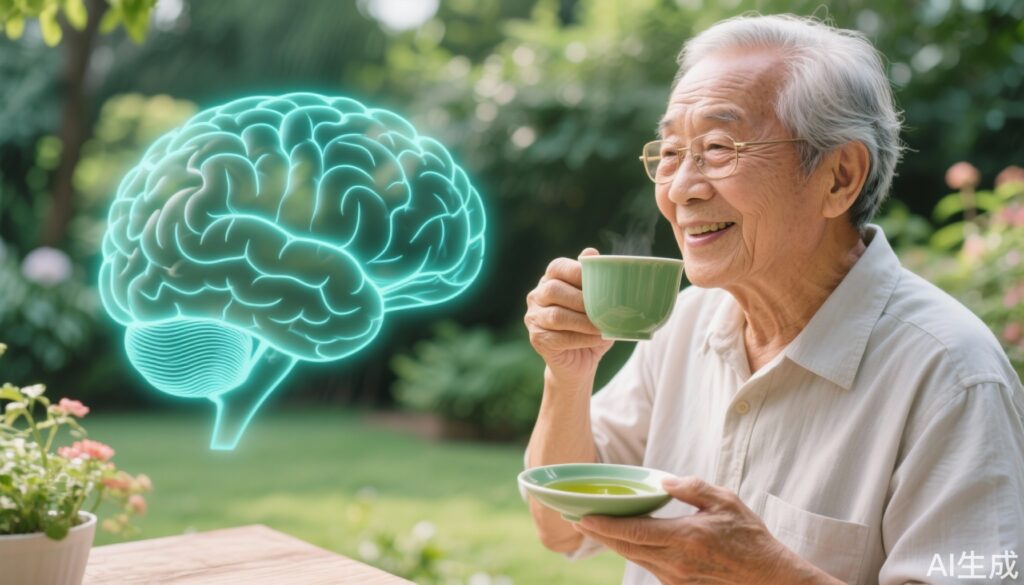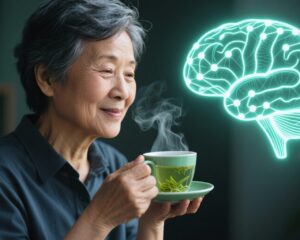Introduction
Tea is one of the most beloved beverages worldwide, cherished not only for its taste but also for its traditional links to health and well-being. Among many claims, the belief that tea can enhance brain health and preserve cognitive function has garnered growing interest. However, scientific evidence examining this association, particularly across different types of tea and consumption patterns, remains limited. This article explores recent research assessing how tea drinking impacts cognitive function in older adults, integrating advanced analytic methods to address potential biases.
Understanding Cognitive Decline and Its Global Impact
With populations aging globally, cognitive impairment and dementia pose serious public health challenges. Cognitive decline affects memory, problem-solving, and daily functioning, profoundly impacting quality of life and healthcare costs. Identifying lifestyle factors that could help maintain brain health is essential for preventive strategies. Tea, a rich source of antioxidants and bioactive compounds, has been proposed as a potential protective agent for cognitive health.
Scientific Evidence: What the Data Tell Us
A recent large-scale study analyzed data from the 2018 Chinese Longitudinal Healthy Longevity Survey (CLHLS) involving 8,498 older adults. Researchers measured cognitive function using the Mini-Mental State Examination (MMSE), a widely used screening tool, and evaluated tea consumption by status (drinkers vs. non-drinkers), frequency, and type (green tea, flower tea, others).
To minimize bias due to differences in demographic and health characteristics, advanced statistical techniques — Propensity Score Matching (PSM) and Inverse Probability of Treatment Weighting (IPTW) — were employed. These methods help create balanced groups for fair comparison.
Key findings include:
– Tea drinkers showed a significantly lower likelihood of cognitive impairment with adjusted odds ratios around 0.84 to 0.87 across different analytic models.
– Cognitive scores were higher among tea drinkers, indicating better overall brain function.
– Regular tea consumption correlated with better cognitive performance compared to those who never or rarely drank tea.
– Green tea specifically was associated with the strongest protective effects, including a 25-29% reduction in cognitive impairment risk and higher cognitive test scores.
– Flower teas showed promising benefits specifically in men, individuals without education, and those earning above 10,000 RMB annually.
– Statistical interactions suggested that the impact of tea on cognition could vary depending on age, educational background, and income.
Decoding Tea Types: Why Green and Flower Teas Stand Out
Green tea is rich in catechins—natural antioxidants believed to combat oxidative stress in the brain, a contributor to cognitive decline. These compounds may also influence brain plasticity and improve neuronal signaling.
Flower teas, encompassing varieties like chrysanthemum or jasmine, contain various flavonoids and aromatic compounds that may confer additional neuroprotective effects. Although less studied than green tea, flower teas’ potential benefits warrant further research.
Common Misconceptions and Health Risks
While tea is beneficial, some misconceptions persist:
– Drinking excessive amounts of tea will rapidly improve brain function: Cognitive benefits likely accrue over long-term, regular consumption rather than short-term spikes.
– All teas are equally beneficial: Different teas vary chemically and biologically; green tea shows the most consistent protective effects.
– Tea can replace medical interventions for dementia: Tea consumption is adjunctive and not a substitute for medical evaluation or treatment.
Excessive caffeine intake from tea may cause side effects such as insomnia, nervousness, or gastrointestinal discomfort, particularly in sensitive individuals. Moderation is key.
Practical Recommendations for Incorporating Tea into a Brain-Healthy Lifestyle
Based on current evidence, these practices may optimize cognitive benefits:
– Prefer regular consumption of green tea, aiming for 2-3 cups per day when feasible.
– Explore flower teas as complementary options, especially among older adults and those with specific socioeconomic backgrounds.
– Combine tea drinking with other healthy lifestyle factors, including balanced nutrition, physical activity, and cognitive engagement.
– Avoid excessive caffeine intake and consult healthcare providers if you have underlying health conditions or are sensitive to stimulants.
Expert Insights
Dr. Mei Chen, a neurologist specializing in aging and cognition, notes, “This study provides compelling evidence that habitual tea consumption, particularly green tea, may support brain health in older adults. It highlights the importance of considering lifestyle factors alongside genetics and environment.”
Nutritionist David Lee adds, “Tea is a culturally rich element with unique phytochemicals that could provide neuroprotection. However, integrating tea drinking into a holistic approach to brain health is crucial.”
Patient Scenario: Mrs. Johnson’s Journey to Sharpness
Mrs. Elizabeth Johnson, a 72-year-old retired teacher, has begun noticing mild forgetfulness. Upon discussing lifestyle changes with her physician, she started drinking green tea daily, alongside engaging in memory exercises and walking regularly. Over the next year, her cognitive tests improved slightly, and she reports feeling more mentally alert and focused. Mrs. Johnson’s case illustrates how simple, culturally familiar habits like tea drinking can meaningfully support cognitive health when combined with a comprehensive approach.
Conclusion
Scientific research affirms that tea consumption, especially regular and green tea intake, associates with better cognitive function and lower prevalence of impairment in older adults. Flower teas also show promise, particularly among certain demographic groups. These findings underscore tea’s role as a potentially valuable component of a brain-healthy lifestyle. Nevertheless, tea should not replace medical care but rather complement multifaceted strategies aimed at preserving cognition as populations age. Future research must explore underlying mechanisms and evaluate long-term clinical outcomes.
References
Huang J, Xu J, Gu Y, Sun H, Liu H, He Y, Li M, Gao X, Tang Z, Wang H. Tea consumption and cognitive health in Chinese older adults: A propensity score matching and weighting analysis. Arch Gerontol Geriatr. 2025 Apr;131:105735. doi: 10.1016/j.archger.2024.105735. Epub 2024 Dec 25. PMID: 39752841.
Additional references for background reading:
– Borenstein AR, Wu Y, Mortimer JA. Tea drinking and cognitive decline: A review. Curr Alzheimer Res. 2019;16(9):861–868.
– Li W, et al. Association of Tea Consumption with Cognitive Disorders: A Systematic Review and Meta-Analysis. Nutrients. 2021;13(7):2296.



